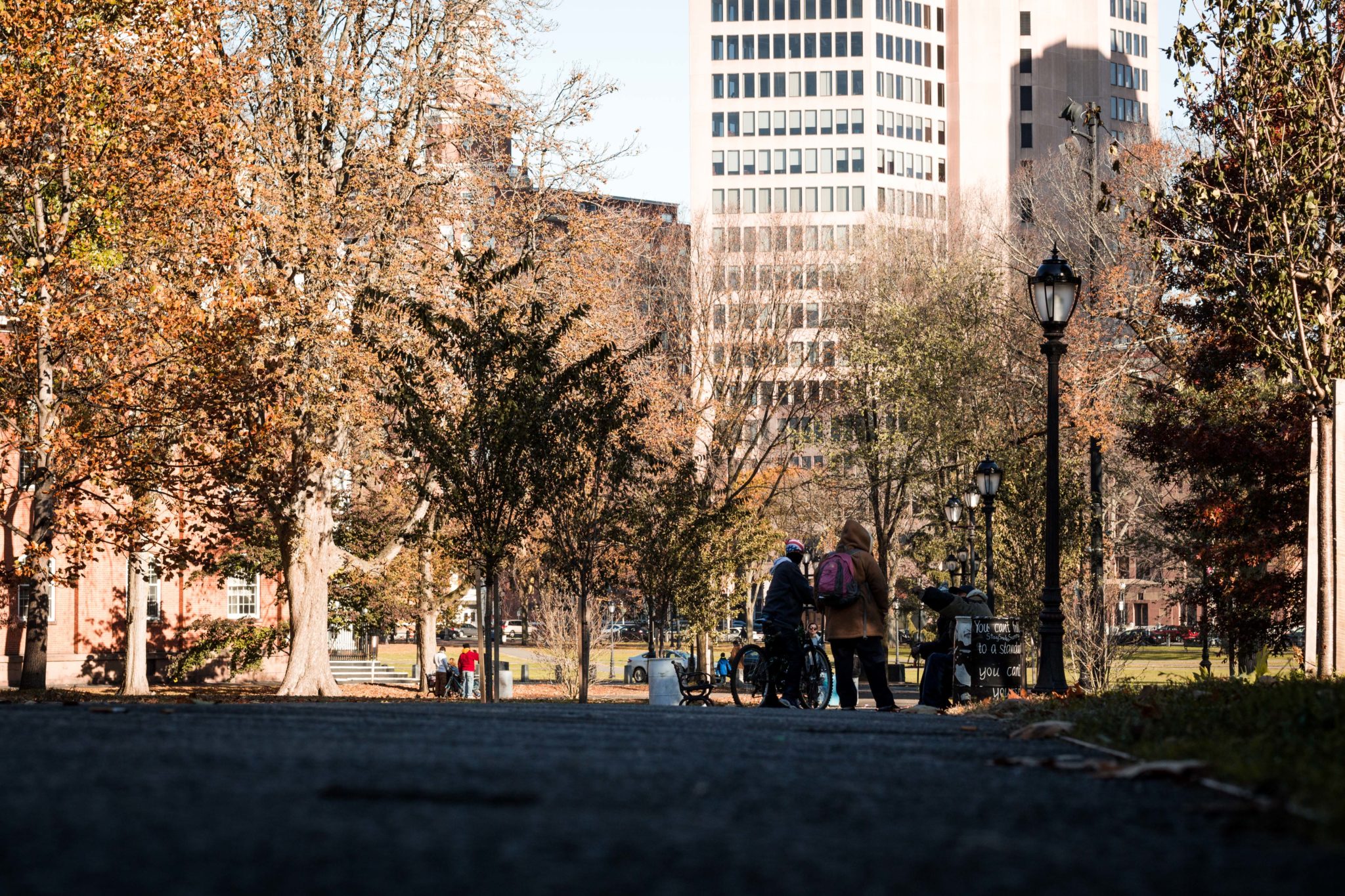
Members of the Urban Improvement Corps, founded in 1968, are celebrating the organization’s 50th anniversary this year, marking the occasion by doubling the number of tutors they have and celebrating with students’ families.
Affiliated with the Afro-American Cultural Center, the Urban Improvement Corps is a campus group that provides mentoring and tutoring services to public school students in the New Haven area. According to Siduri Beckman ’20, co-president of the UIC, the group is not just about academics. It also encourages creating community bonds and friendships between undergraduate tutors and students.
“The UIC is a collection of undergraduates that are really invested in addressing public education and equality, especially in New Haven,” Beckman told the News. “It’s a relationship beyond just academic help.”
The group has 35 members, the majority of which are University undergraduates. Each Yale student, who is typically involved for all four of their years in New Haven, works with two students from New Haven public schools.
According to Beckman, the longevity of the tutoring experience helps establish a long-lasting mentorship between students and tutors — one of the group’s key principles.
The Urban Improvement Corps is currently assisting 100 local high school students, about 45 of whom receive one-on-one tutoring and 60 of whom participate in small “core” classes on subjects ranging from creative writing to computer programming. The undergraduate tutors play a key role in both programs.
“Our teachers come from all kinds of backgrounds, but they’re committed to mentorship and forming relationships with students and really thinking critically about public education,” Beckman said.
She added that many of the group’s tutors are members of the Education Studies program — a selective, interdisciplinary program that focuses on current and past education policy — or Splash at Yale, another campus education group.
Twice each year, undergraduate and graduate students in Splash at Yale teach classes on a topic of their choice to New Haven public school students.
Beckman said that the UIC is strongly affiliated with the the Afro-American Cultural Center, calling the educational organization a “house” group. Beckman noted that much of the group’s funding comes from the cultural center and that identity is an important part of the UIC and a concept that the group thinks about “a lot” in terms of education.
In interviews with the News, Beckman and her co-president Marie Gaye ’20 said they are trying to “increase the community identity” of students’ families through a range of events, including movie screenings and a “Science Day” for program participants and their families, organized through a partnership with the Yale Undergraduate Aerospace Association.
This year, the group is also celebrating its 50th anniversary. Beckman noted that they will be celebrating with the UIC families in a party at the end of the semester.
Gaye, who is also a tutor with the group, described her involvement with UIC as “one of the most fulfilling” experiences at Yale, specifically praising how the organization links the Afro-American Cultural Center with the New Haven community.
“[I] love that we bridge the Afro-American Cultural Center with the Greater New Haven community,” Gaye told the News. “It’s powerful that Yale kids like me who attended public schools and didn’t come from the privilege and backgrounds that many of our peers did can form relationships with youth and let them know that anything is possible.”
Tahj Lakey ’21, another tutor, praised the group’s approach of creating an environment for their tutees that is “both affirming and supportive” of their identities, noting that this emphasis on mentorship is “the most important aspect” of teaching students.
The Afro-American Cultural House was founded in 1969.
Aakshi Chaba | aakshi.chaba@yale.edu







